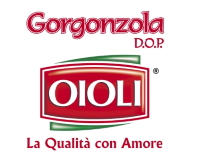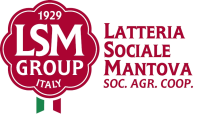Legal notes and privacy | version valid until May 2018
< Back to current versionCLAL S.r.l.
Use of Data and Limitation of Liability
The mere reproduction of any of the data and information found on the websites www.clal.it, news.clal.it and teseo.clal.it, made available in any manner, is permitted.
Data processed by CLAL available through reserved access may not be transferred or disseminated in any manner by the user having access. These data may include, for example, but are not limited to, those found in the areas available through reserved access: Dairy World Trade (DWT), Slideshow, Milk Atlas.
In the event that data processed by CLAL on the website, and/or those processed by third parties, are used, the origin of the data must be stated.
The automated collection of data and information found on the aforementioned websites is strictly forbidden unless express prior authorization has been given by CLAL S.r.l., which must be requested via e-mail at the address .
Any breach of the provisions set out above will be prosecuted before the competent civil and criminal authorities.
Forecasts made by CLAL are the result of the mathematical-statistical processing of data representing the time series, whose future values are to be estimated, as well as other series of data considered adequate to explain the variations in the time series to be forecast.
CLAL (and members of its management team and/or staff, its employees and/or working associates) will not under any circumstances be held liable towards anyone for any damage (including, but not limited to, loss of profit and/or losses, direct or indirect damage of any kind) resulting from the use of this website, data, information or forecasts found on it (including those originating from third parties), or from opinions and recommendations given (including, for example, but not limited to: Farm-gate milk prices, Italy (Lombardy)).
Even though the site, data, information and forecasts have been put together with the utmost care, they may contain typing, technical or other errors.
We are constantly changing and improving our services. The data, information and functionalities may be altered or revised and the provision of any information or service in the public area may be suspended or permanently interrupted at any time without prior notice.
Privacy
THE PURPOSE BEHIND THIS NOTICE
On this page you will find a description of the methods adopted to run the websites www.clal.it, news.clal.it and teseo.clal.it, with reference to the processing of personal data of “users” consulting them. It represents a privacy statement, which has also been drawn up pursuant to art. 13 of Legislative Decree 196/2003 (Code on the Protection of Personal Data) for those interacting with web services originating from the following addresses:
www.clal.it, news.clal.it and teseo.clal.it
The privacy statement was drawn up solely for the websites listed above and not for any other websites consulted by the user via links provided. The statement was also inspired by Recommendation no. 2/2001 on the protection of personal data issued by the European Authorities, joined in the Working Party set up pursuant to art. 29 of EC Directive no. 95/46/EC, which was adopted on 17th May 2001 to establish a number of minimum requirements for the collection of personal data on-line, and, in particular, information regarding the methods adopted, time schedules applying and the nature of the information that the data controller must give users when they connect to web pages, regardless of the reasons for their visit.
Place where data are processed
Processing connected with web services available on this site takes place at the aforementioned registered office of the company CLAL S.r.l. and is dealt with exclusively by staff at the offices instructed to handle data, or by persons instructed to carry out sporadic maintenance operations. No data originating from the web service are transferred or disseminated, apart from in the manner described below.
Personal data furnished by users who forward requests for informative material to be dispatched (newsletters, replies to queries, etc.) are used solely for the purpose of providing the service or satisfying the user’s requests and are passed on to third parties only if strictly necessary for this purpose.
Types of data processed
Navigation data
The data processing systems and software procedures responsible for running these websites obtain, during normal operations, certain personal data whose transmission is implied when Internet communications protocols are used. This information is not collected to be associated with the subjects concerned, but, by their very nature, may, through processing and association with data kept by third parties, allow the users to be identified.
This category of data includes IP addresses or domain names of computers with which users connect up to the site, addresses in notation URI (Uniform Resource Identifier) of the resources requested, the time of the request, the method adopted to submit the request to the server, the size of the file obtained in reply, the numeric code indicating the state of the reply given by the server (successfully completed, error, etc.) and other parameters relating to the operating system and the user’s computer environment.
These data are used solely for the purpose of obtaining anonymous statistical information on the use of the site and of ensuring that the site functions correctly. The data may be used to ascertain liability in the event of supposed computer crimes damaging the site.
Data supplied voluntarily by the user
The discretionary, express and voluntary transmission of electronic mail to the addresses indicated on this site result in the acquisition of the sender’s address, necessary in order to reply to requests and queries, as well as any other personal data inserted in the message.
Specific information will be set out in concise form or displayed progressively on the pages of the site created to provide particular services upon request.
The conferment of data is obligatory for reasons connected with normal commercial and administrative practice and failure to furnish them may prevent the performance of the contract and/or continuation of business relations and/or contacts and also make it impossible for the user to obtain what he requires.
Cookies
The websites www.clal.it, news.clal.it and teseo.clal.it use technical and profiling cookies, as well as third-party cookies, to optimise user experience and to manage the services available on the site as efficiently as possible, in keeping with your own preferences. To find out more or to withhold consent to all and any cookies, consult the extended privacy statement by clicking HERE.
Methods adopted to process data
Personal data requested or acquired, before a contact and/or business, collaboration or employment relationship has been set up, are processed with a view to satisfying legal and contractual obligations and ensuring that those obligations are performed correctly by CLAL S.r.l., thereby allowing its business activities to be conducted as efficiently as possible.
Pursuant to article 13 of the Code, the following information is therefore provided.
I Suoi dati personali conferiti potranno essere comunicati e diffusi dalla nostra Società:
- only in the circumstances envisaged by law, in order to satisfy obligations of an administrative, accounting and/or fiscal nature for the aforementioned purposes;
- solely to outside associates of the company CLAL S.r.l., acting as tax and/or accountancy and/or legal consultants, for the performance of the tasks described under point a);
- to founder bodies/institutes/companies, dealers, sub-dealers, contractors and/or sub-contractors involved in conducting existing contractual or business relations.
- your personal (not sensitive) data may be disseminated, solely with your prior express consent, which can be revoked at any time, through insertion on the websites "www.clal.it", "news.clal.it" and "teseo.clal.it", and publication in periodicals and magazines specialising in the sector;
- solely with your prior express consent, which can be revoked at any time, to companies operating in the same sector as your company.
Your data cannot under any circumstances be transferred abroad, unless necessary for system management purposes.
This data will be processed for purposes connected with and/or related to the professional activities conducted by the
company CLAL S.r.l., in keeping with the objectives described above, for a period not exceeding that strictly
necessary to achieve the aforementioned aims.
Data will be processed using appropriate methods and instruments that guarantee their confidentiality and may be
processed using electronic or automated means (network data processing systems not accessible to the public and/or
cloud computing services guaranteed under contract) and using non-automated means (paper-based archives and records),
both protected by adequate security measures such as personalised passwords offering exclusive access, personal identity
codes and limited access to records, as provided for and regulated by articles 31 to 36 inclusive of the Code and also in
compliance with article 11 of the Code.
From an organisational point of view, controls are carried out when tasks are designated to subjects responsible for
processing data and on the methods used to classify data.
The Data Controller
The Data Controller is the company CLAL S.r.l., with registered office in (41121) Modena, Viale Caduti in Guerra no. 1, tel. 059/214171, , certified e-mail:
Rights of data subjects
The subjects to whom the personal data refer are entitled, at any time, to obtain confirmation as to whether or not those data exist and to be informed of their contents and origin, to check that they are correct and to have them supplemented or revised, or altered (articles 7, 8, 9 and 10 of Legislative Decree no. 196/2003 set out below for ease of reference).
Pursuant to these provisions, the data subject is entitled to request that data processed in contravention of the
law be deleted, rendered anonymous or the circulation thereof restricted, and in any event to oppose the processing
of data, on legitimate grounds.
Requests should be forwarded to the Data Controller, at the following e-mail address:
.
Art.7 - Right of access to personal data and other rights
- The data subject (party concerned) is entitled to obtain confirmation regarding the existence or otherwise of personal data regarding self, even if such data are not yet registered, and to receive the said data in intelligible form.
-
The data subject (party concerned) is entitled to receive information regarding:
- the origin of the personal data;
- the purposes for which the data are being processed and the methods adopted;
- the logics applied in the event that the data are processed with the use of electronic equipment;
- details identifying the data controller, the data processing supervisors and the appointed representative as envisaged in article 5, paragraph 2;
- the subjects or the categories of subject to whom the personal data may be transferred or to whose attention they may be brought in a capacity as appointed representative for the territory of the State in question, as data processing supervisors or data processors.
-
The data subject (party concerned) is entitled:
- to have data revised, altered or, when in his or her interests, supplemented;
- to have data processed in contravention of the law deleted, rendered anonymous or the circulation thereof restricted, including any information which need not be kept for the purposes for which the data were collected or subsequently processed;
- to obtain confirmation that the measures referred to in the foregoing paragraphs a) and b), including details thereof, have been brought to the attention of the parties to whom the data have been transferred or disseminated, unless such an obligation proves impossible or would require means which are grossly disproportionate to the rights being protected.
-
The data subject (party concerned) is entitled to oppose, either in whole or in part:
- on legitimate grounds, the processing of personal data regarding self, even if such data are relevant, with regard to the purposes underlying the collection thereof;
- the processing of personal data regarding self for purposes connected with the sending of advertising material, with direct sales, market research or sales communications.
Art.8 - Exercise of rights
- The rights referred to in article 7 may be exercised by making a request to the data controller or processor without formalities, also by the agency of a person in charge of the processing. A suitable response shall be provided to said request without delay.
-
The rights referred to in article 7 may not be exercised by making a request to the data controller or processor, or else by lodging a complaint pursuant to article 145, if the personal data are processed:
- pursuant to the provisions of decree-law no. 143 of 3 May 1991, as converted, with amendments, into Act no. 197 of 5 July 1991 and subsequently amended, concerning money laundering;
- pursuant to the provisions of decree-law no. 419 of 31 December 1991, as converted, with amendments, into Act no. 172 of 18 February 1992 and subsequently amended, concerning support for victims of extortion;
- by parliamentary Inquiry Committees set up as per Article 82 of the Constitution;
- by a public body other than a profit-seeking public body, where this is expressly required by a law for purposes exclusively related to currency and financial policy, the system of payments, control of brokers and credit and financial markets and protection of their stability;
- pursuant to article 24(1), letter f), as regards the period during which performance of the investigations by defence counsel or establishment of the legal claim might be actually and concretely prejudiced;
- by providers of publicly available electronic communications services in respect of incoming phone calls, unless this may be actually and concretely prejudicial to performance of the investigations by defence counsel as per Act no. 397 of 7 December 2000;
- for reasons of justice by judicial authorities at all levels and of all instances as well as by the Upper Council of the Judiciary or other self-regulatory bodies, or else by the Ministry of Justice;
- pursuant to article 53, without prejudice to Act no. 121 of 1 April 1981.
- In the cases referred to in paragraph 2, letters a), b), d), e) and f), the Data Protection Supervisor, also following a report submitted by the data subject, shall act as per articles 157, 158 and 159; in the cases referred to in letters c), g) and h) of said paragraph, the Data Protection Supervisor shall act as per article 160.
- Exercise of the rights referred to in article 7 may be permitted with regard to data of non-objective character on condition that it does not concern rectification of or additions to personal evaluation data in connection with judgments, opinions and other types of subjective assessment, or 21 else the specification of policies to be implemented or decision-making activities by the data controller.
Art.9 - Methods to exercise rights
- The request addressed to the data controller or processor may also be conveyed by means of a registered letter, facsimile or e-mail. The Data Protection Supervisor may specify other suitable arrangements with regard to new technological solutions. If the request is related to exercise of the rights referred to in article 7(1) and (2), it may also be made verbally; in this case, it will be written down in summary fashion by either a person in charge of the processing or the data processor.
- The data subject may grant, in writing, power of attorney or representation to natural persons, bodies, associations or organisations in connection with exercise of the rights as per article 7. The data subject may also be assisted by a person of his/her choice.
- The rights as per article 7, where related to the personal data concerning a deceased, may be exercised by any entity that is interested therein or else acts to protect a data subject or for family-related reasons deserving protection.
- The data subject’s identity shall be verified on the basis of suitable information, also by means of available records or documents or by producing or attaching a copy of an identity document. The person acting on instructions from the data subject must produce or attach a copy of either the proxy or the letter of attorney, which shall have been undersigned by the data subject in the presence of a person in charge thereof or else shall bear the data subject's signature and be produced jointly with a copy of an ID document from the data subject, which shall not have to be certified true pursuant to law.
- The request referred to in article 7(1) and (2) may be worded freely without any constraints and may be renewed at intervals of not less than ninety days, unless there are well-grounded reasons.
Art.10 - Response to data subjects
-
With a view to effectively exercising the rights referred to in article 7, data controllers shall take suitable measures in order to, in particular:
- facilitate access to personal data by the data subjects, even by means of ad hoc software allowing accurate retrieval of the data concerning individual identified or identifiable data subjects;
- simplify the arrangements and reduce the delay for the responses, also with regard to public relations departments or offices.
- The data processor or the person(s) in charge of the processing shall be responsible for retrieval of the data, which may be communicated to the requesting party also verbally, or else displayed by electronic means - on condition that the data are easily intelligible in such cases also in the light of the nature and amount of the information. The data shall be reproduced on paper or magnetic media, or else transmitted via electronic networks, whenever this is requested.
- The response provided to the data subject shall include all the personal data concerning him/her that are processed by the data controller, unless the request concerns either a specific processing operation or specific personal data or categories of personal data. If the request is made to a health care professional or health care body, article 84(1) shall apply.
- If data retrieval is especially difficult, the response to the data subject’s request may also consist in producing or delivering copy of records and documents containing the personal data at stake.
- The right to obtain communication of the data in intelligible form does not apply to personal data concerning third parties, unless breaking down the processed data or eliminating certain items from the latter prevents the data subject’s personal data from being understandable.
- Data are communicated in intelligible form also by using legible handwriting. If codes or abbreviations are communicated, the criteria for understanding the relevant meanings shall be made available also by the agency of the persons in charge of the processing.
- Where it is not confirmed that personal data concerning the data subject exist, further to a request as per article 7(1) and (2), letters a), b) and c), the data subject may be charged a fee which shall not be in excess of the costs actually incurred for the inquiries made in the specific case.
- The fee referred to in paragraph 7 may not be in excess of the amount specified by the Data Protection Supervisor in a generally applicable provision, which may also refer to a lump sum to be paid in case the data are processed by electronic means and the response is provided verbally. Through said instrument the Data Protection Supervisor may also provide that the fee may be charged if the personal data are contained on special media whose reproduction is specifically requested, or else if a considerable effort is required by one or more data controllers on account of the complexity and/or amount of the requests and existence of data concerning the data subject can be confirmed.
- The fee referred to in paragraphs 7 and 8 may also be paid by bank or postal draft, or else by debit or credit card, if possible upon receiving the relevant response and anyhow within fifteen days of said response.
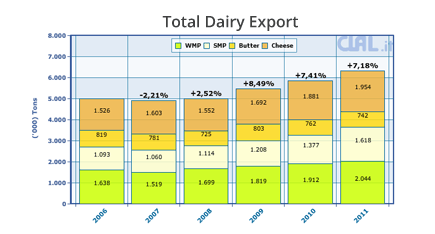
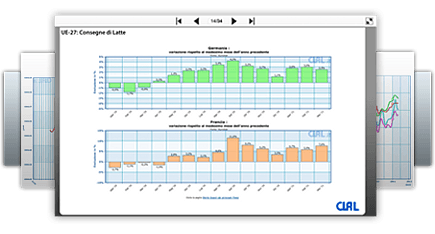
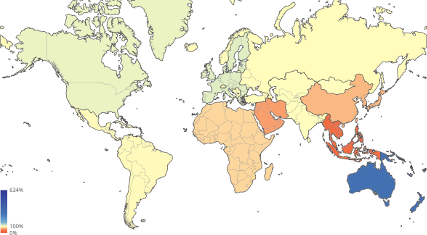












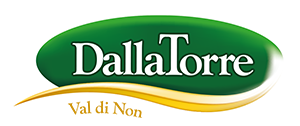













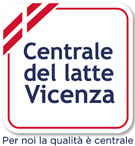




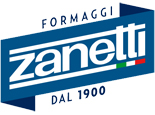




















.jpg)















.jpg)



